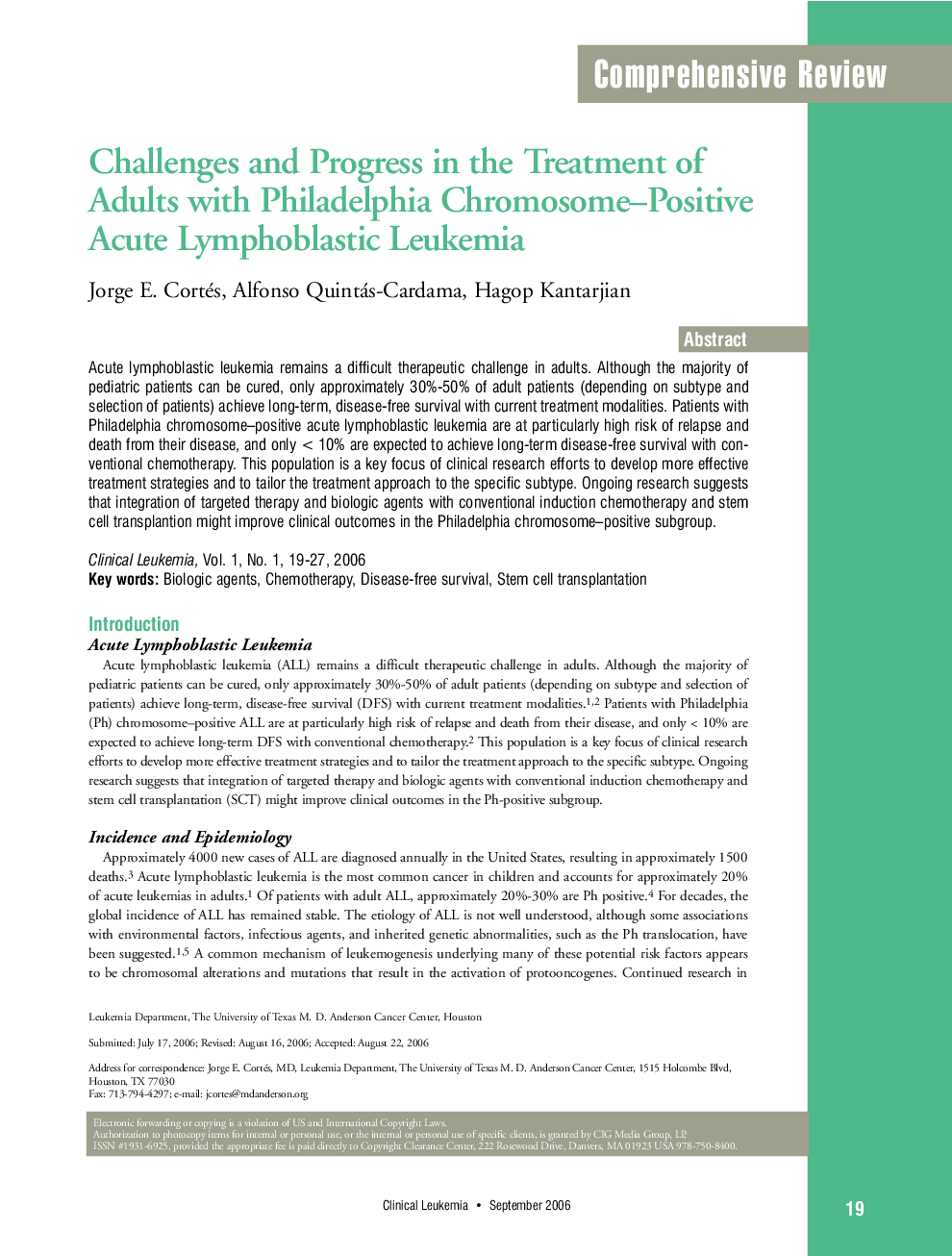| کد مقاله | کد نشریه | سال انتشار | مقاله انگلیسی | نسخه تمام متن |
|---|---|---|---|---|
| 3981077 | 1257652 | 2006 | 9 صفحه PDF | دانلود رایگان |

Acute lymphoblastic leukemia remains a difficult therapeutic challenge in adults. Although the majority of pediatric patients can be cured, only approximately 30%–50% of adult patients (depending on subtype and selection of patients) achieve long-term, disease-free survival with current treatment modalities. Patients with Philadelphia chromosome–positive acute lymphoblastic leukemia are at particularly high risk of relapse and death from their disease, and only < 10% are expected to achieve long-term disease-free survival with conventional chemotherapy. This population is a key focus of clinical research efforts to develop more effective treatment strategies and to tailor the treatment approach to the specific subtype. Ongoing research suggests that integration of targeted therapy and biologic agents with conventional induction chemotherapy and stem cell transplantion might improve clinical outcomes in the Philadelphia chromosome–positive subgroup.
Journal: Clinical Leukemia - Volume 1, Issue 1, September 2006, Pages 19-27